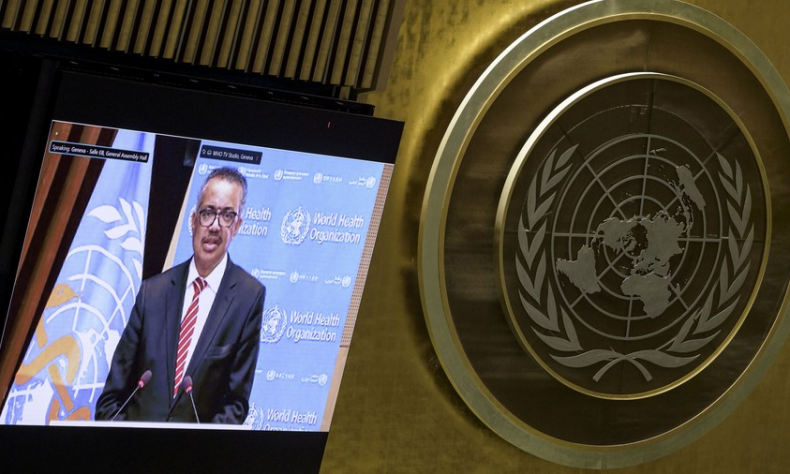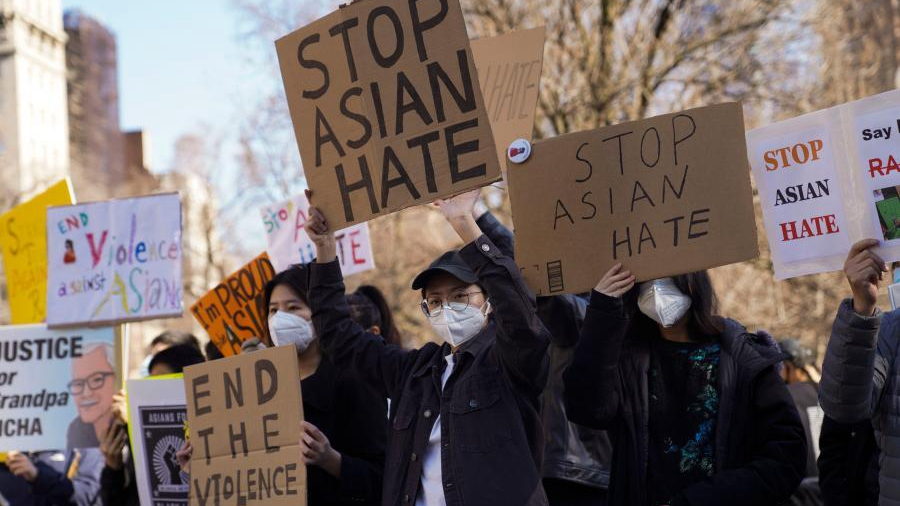Politicizing COVID-19 Destroys Any Chance of Tracing Its Origins

Politicizing this pandemic has already robbed enough people of their present. It must not be allowed to also rob them of their future.
Since discovering the first traces of COVID-19 in a Wuhan seafood market more than a year ago, the world has been waiting to find out where the deadly virus originated.
In the absence of any concrete answer, outlandish and crazed theories have been able to take hold, such as blaming 5G, Bill Gates, or a virology lab in China. But on March 30 the World Health Organization (WHO) got one step closer to revealing how the pandemic – which has taken over 2.8 million lives – may have occurred.
Presenting the findings from their four-week investigation in Wuhan last January, WHO expert and mission lead Peter Ben Embarek stated that the virus was “likely to very likely” to have originated in animals – most likely bats – before spreading to humans via an intermediatory animal.
Three other hypothesises were also tested during their investigation – including spreading via frozen food packaging and a leak from the Wuhan Institute of Virology – but none were seen as more scientifically plausible, with the lab-leak theory dismissed as “extremely unlikely”.
“Only scratched the surface”
Many will be disappointed by the WHO’s less than definitive findings, having hoped it would serve as a “post-mortem” for this most deadly of pandemics. But in truth, finding a definitive answer was never the goal nor expectation of this report.
Prior to the team’s mission to Wuhan, experts were keen to cool expectations, using the example of the original SARS outbreak to highlight what a long and painstakingly slow process virus tracing can be.
Just days before the team landed in Wuhan, Dr. Dale Fisher, chair of the Global Outbreak Alert and Response Network and part of the first team who went to Wuhan last year, warned that people should “set the expectations of a conclusion very low for this visit”, given the complicated nature of tracing virus origins.
This point was further emphasised by Embarek in his press conference, stating that the preliminary nature of the study had “only scratched the surface” of their understanding of SARS-CoV-2, and that future investigations will still be needed to see whether the virus came from “another part of China or elsewhere”.
For some countries, however, their findings were simply not good enough. After the press conference had concluded, 14 countries and institutions including the US, UK, Australia, and Canada, came out to express their “shared concerns” at the report, as well as highlighting once again their worries at the “dangerous collusion” they perceive is ongoing between the WHO and China since the pandemic first started.
Politics trumps science
It isn’t a coincidence that a number of these countries most critical of the report are also those who have been most effected by COVID-19.
The US and UK in particular have endured a terrible pandemic, experiencing some of the highest excess mortality rates of any country, as well as incurring extensive damage to their respective economies. But rather than facing up to their own failures, they have looked for a scapegoat to pin their disasters on.
China and the WHO have become that scapegoat, and in turn has created an incredibly toxic relationship between them and a number of western countries.
Earlier in the pandemic, this could be seen in some western countries attitudes to masks and lockdowns, which were decried as “dystopian” or “antiliberal” when promoted by both China and the WHO as effective ways to curb the spread of COVID-19, and has continued as cases have dropped to near zero in China but steadily risen in Europe and North America.
This excessive finger-pointing has grown louder and more aggressive, to the point that it has now trained how these countries to see the report, comparing it to nothing more than another cover-up, despite no evidence to prove it. Obviously, politics has trumped science.

De-escalation needed going forward
This danger of politicizing COVID-19 has already greatly affected the length of lockdowns, rates of death, and numbers of hate crimes. And if this political climate isn’t cooled rapidly, it could seriously threaten efforts to end the pandemic for good, as well as finding the virus’s origins once and for all.
Vaccines are already in danger of becoming the same political football that masks and lockdowns were, with donations of these important serums now deemed by some as “weapons of diplomacy” rather than “keys” to ending lockdowns and getting economies moving once again.
There are still 130 countries – nearly 2.5 billion of the world’s population – yet to administer a single vaccine dose according to UNICEF, making it all the more important governments equally support and encourage each other to send doses to those most in need.
There are also fears that without a significant de-escalation in tensions between China, the WHO, and some western countries, future investigations into the origins of SARS-CoV-2 will be increasingly difficult to organise.
Embarek and the WHO team have made it clear that further investigations are needed in “another part of China or elsewhere”, to help fully identify where the virus first occurred, opening up the possibility of going to other countries in their search for it.
But what country in their right mind would be willing to open themselves up to a WHO mission given the excessive level of scrutiny, the presumption of guilt, and violent threats of repercussions that China has experienced over the past year?
If governments truly want to return to normal and discover the true origins of this coronavirus so they can better prepare for the next potential outbreak, then they need to start leaving their politics at the door, find common ground and follow what experts have called for all along with the science.
Politicizing this pandemic will not help with that, and given it has already robbed enough people of their present, it must not be allowed to rob them of their future too.
The article reflects the author’s opinions, and not necessarily the views of China Focus.
 Facebook
Facebook
 Twitter
Twitter
 Linkedin
Linkedin
 Google +
Google +







